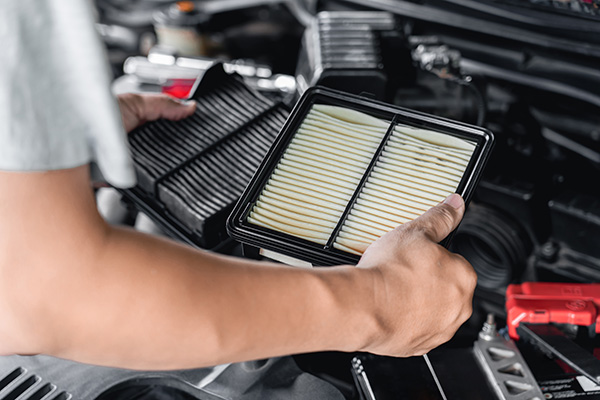
Maintaining your car's performance involves paying attention to many components, and one often overlooked yet critical part is the air filter. You might wonder, "How does a dirty air filter affect fuel economy?" It's more significant than you might think. A clean air filter ensures optimal airflow to the engine, which is important for efficient fuel combustion. Let's see how a dirty air filter can impact your vehicle's fuel economy and why regular maintenance is essential.
The Role of an Air Filter in Your Car
Your car's air filter plays a crucial role in maintaining engine health. It's designed to filter out dirt, dust, and other contaminants from the air entering the engine. Clean air is crucial for the combustion process, where fuel mixes with air to power your car. Without an efficient air filter, debris can enter the engine, leading to wear and tear and reduced performance.
How a Dirty Air Filter Affects Fuel Economy
When the air filter is clogged with dirt and debris, it restricts airflow to the engine. This restriction forces the engine to work harder to pull in the necessary air, disrupting the air-to-fuel ratio. Here's how this affects fuel economy:
1. Increased Fuel Consumption
A dirty air filter causes the engine to receive less oxygen, leading to an over-rich air-fuel mixture. In this scenario, more fuel is used to compensate for the lack of oxygen, increasing fuel consumption. Essentially, your car burns more fuel to achieve the same level of performance.
2. Reduced Engine Performance
With restricted airflow, the engine struggles to perform efficiently. You might notice a drop in acceleration and overall power. This means the engine must work harder, burning more fuel and lowering fuel economy. Over time, this inefficiency can also lead to more significant engine problems.
3. Emission Problems
A dirty air filter can also cause your vehicle to emit more pollutants. The over-rich air-fuel mixture leads to incomplete combustion, increasing the production of carbon monoxide and other harmful emissions. Not only does this affect fuel economy, but it also impacts the environment and may cause your car to fail emissions tests.
Recognizing the Signs of a Dirty Air Filter
It's crucial to recognize when your air filter needs attention. Here are some common signs:
Poor Acceleration
If you notice that your car's acceleration isn't as responsive as it used to be, it might be due to a clogged air filter restricting airflow to the engine.
Engine Misfires
A dirty air filter can lead to unburned fuel exiting the engine as soot residue. This can cause the engine to misfire or make unusual noises.
Check Engine Light
Modern cars have sensors that monitor engine performance. A clogged air filter can trigger the check engine light as the engine struggles to maintain optimal air-fuel ratios.
The Importance of Regular Air Filter Maintenance
Regular maintenance of your air filter can prevent many of these issues. Here's why you should keep your air filter clean:
Improved Fuel Efficiency
A clean air filter ensures the engine receives adequate airflow, maintaining the correct air-fuel ratio and improving fuel efficiency. This means fewer trips to the gas station and more savings.
Enhanced Engine Performance
With a clean air filter, your engine can perform at its best. You'll notice better acceleration, smoother running, and overall improved performance.
Longevity of Engine Life
Preventing debris from entering the engine reduces wear and tear, prolonging the life of your engine. Regular air filter maintenance is a simple yet effective way to protect your investment in your vehicle.
How Often Should You Replace Your Air Filter?
The frequency of air filter replacement depends on various factors, including your driving conditions. It's recommended to replace the air filter every 12,000 to 15,000 miles. However, if you drive frequently in dusty or polluted environments, you may need to replace it more often. Regular checks during oil changes can help you stay on top of this maintenance task.
DIY Air Filter Replacement: Can You Do It at Home?
Replacing your car's air filter is a straightforward task that most people can handle at home. Here's a brief guide:
1. Locate the Air Filter Housing
Open your car's hood and find the air filter housing. It's usually a black plastic box near the engine.
2. Remove the Old Filter
Unclip or unscrew the housing cover and take out the old filter. Check the filter and the housing for dirt and debris.
3. Install the New Filterf
Place the new filter in the housing, ensuring it fits snugly. Replace the cover and secure it with clips or screws.
Don't let a dirty air filter ruin your car's fuel economy and performance. Visit Westside Car Care for a quick and professional air filter replacement!